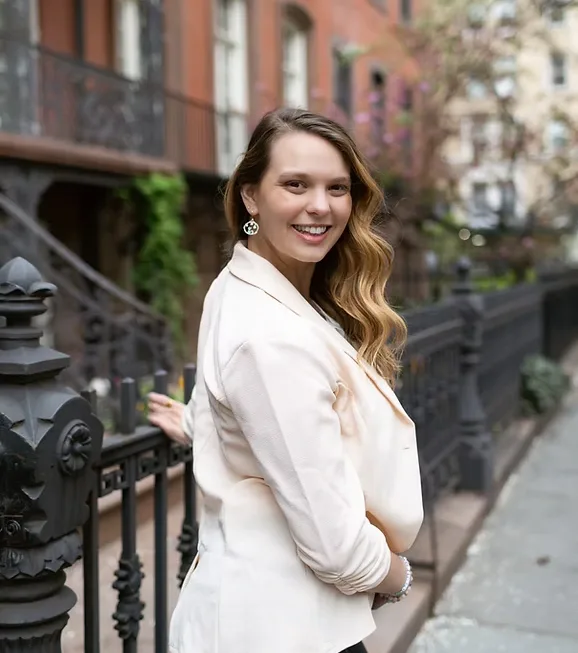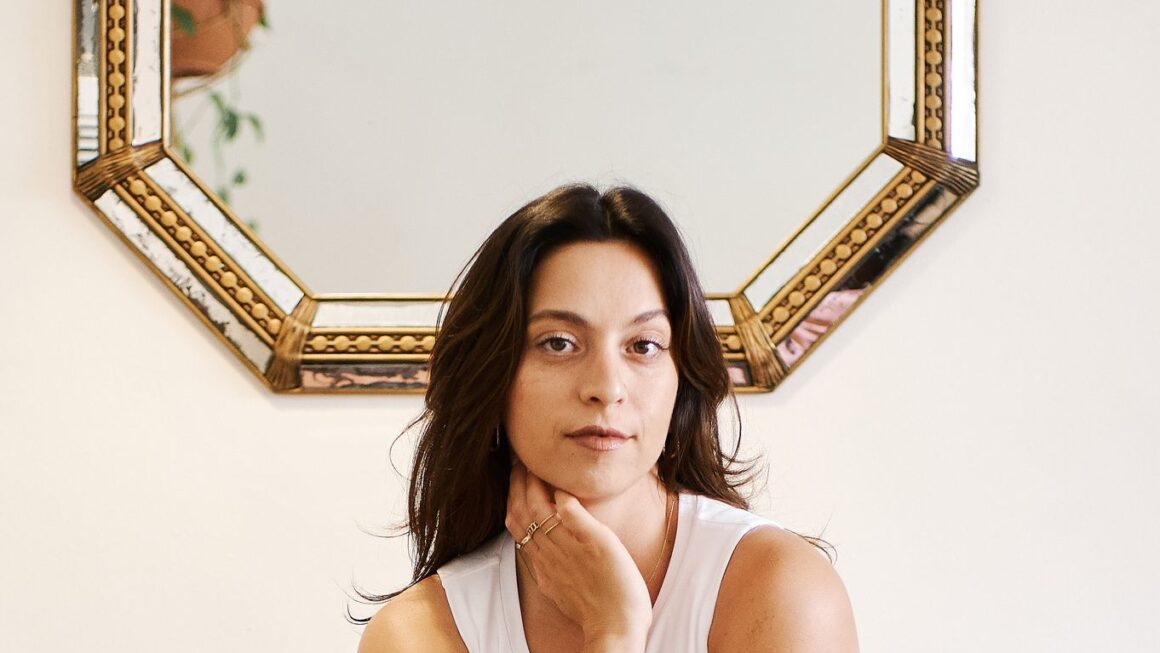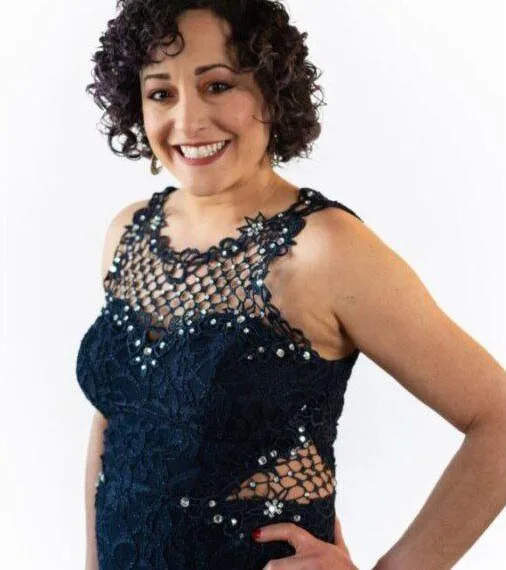Meet Jaclyn
Jaclyn Paradise is a Licensed Associate Counselor (LAC) in New Jersey and a 200-hour Registered Yoga Teacher. She brings a warm, collaborative, and holistic approach to therapy, blending evidence-based practices with mindfulness and somatic awareness.
Jaclyn specializes in working with adults and young adults navigating anxiety, depression, trauma, identity exploration, and life transitions. Her work is grounded in the belief that healing happens through connection, both with others and within ourselves.
Learn more: https://www.authenticallylivingpsych.com/about-jaclyn-paradise
What inspired you to specialize in trauma work?
When I first entered the field, I was placed at a substance use rehab facility for my practicum and internship. If you had asked me then whether I saw myself specializing in trauma, I probably would’ve said no. I didn’t feel equipped. The weight of it all felt overwhelming. I thought I was just there to help with substance use, without realizing the pain, the stories, and the parts of people hidden underneath it.
But as I sat with clients and listened to what they carried, I couldn’t ignore it. Substance use wasn’t the root issue for most. It was a way to survive. I began to understand that the very things people were often judged for—numbing, escaping, disconnecting—were trauma responses. And that realization changed everything for me.
I found mentors who weren’t afraid to go deep. They taught me how to meet people in their pain without trying to fix it, how to help them feel it safely. I dove into learning everything I could: Polyvagal Theory, Internal Family Systems, somatic work, the Empty Chair technique. I wanted to help people reconnect with the parts they had to cut off in order to survive.
What drew me to trauma work wasn’t just the suffering. It was the resilience, the complexity, and the deep privilege of walking alongside someone as they begin to reclaim their life. Helping someone realize they’re not a lost cause because of how they coped, is what keeps me grounded.
You can’t heal abnormal pain with “normal” approaches. And I’ve never looked back.
How would you describe your approach to working with trauma survivors?
It starts with this: we don’t bypass the hard stuff here. My approach is rooted in facing reality—with compassion, curiosity, and zero shame.
I work best with the rebels and the feelers—the ones who’ve been told they’re “too much,” who carry deep emotion but aren’t quite sure where to put it. If that’s you, you’re not broken. You’re human.
I believe healing begins when we stop asking, “What’s wrong with me?” and start asking, “What happened to me?” From there, we work together to understand how your nervous system, your protective parts, and your patterns have been trying to keep you safe.
In our work, I draw from Internal Family Systems (IFS), somatic healing, psychoeducation, and reality-based reflection. I’ll ask the hard questions, and I’ll also hold space for the tears, the silence, the body responses, and all the messy in-betweens.
To understand your story is to take your power back. And that’s where we begin.
What do you wish more people understood about the healing process?
It’s this: healing isn’t about fixing everything on the outside. It’s about learning to understand what’s happening on the inside—your why, your patterns, your pain—and using that insight to shift from surviving to truly living.
Healing isn’t always loud or visible. Sometimes, it’s the quiet choice to respond instead of react. To pause. Stay, and to choose yourself without apology.
It’s not about becoming someone new. It’s about coming home to who you’ve always been.
How do you help clients reconnect with parts of themselves that were lost or hidden due to trauma?
The same way we build trust at the start of therapy, we build it with our parts. With presence, patience, and curiosity, we begin to notice where these parts show up—first in the body, then through emotions, and eventually in the stories they carry.
I help clients slow down enough to meet these parts where they are. Together, we begin to understand that each one was created for a reason. They served a purpose. They protected us when we needed it most.
And with time, we show them they’re still welcome—but they don’t need to take the wheel anymore. They can ride along, but we get to decide where we’re going.
What can someone do if they feel therapy “isn’t working” or they feel stuck?
I truly believe therapy should be a space where you feel safe enough to be open, and in time, vulnerable. If things aren’t feeling right or you’re feeling stuck, I invite you to bring that into the room. This is your space. And if something doesn’t feel right, you deserve to say it out loud, without fear or shame.
Sometimes therapy feels stuck because it is. Other times, it might be a protective part that’s not quite ready to move forward. I often encourage clients to ask themselves, with honesty and compassion: “Is this not working, or is a part of me not ready yet?”
Both are valid. And both deserve space to be explored.
What’s something you still struggle with, or continue to work on as a human being?
I’m very open about attending therapy regularly, usually one to two times a week. I’ve worked with my primary therapist for almost six years (shout out to Julia!) and have been doing deeper trauma work with an EMDR therapist for the past two. I’m a therapist, yes, but I’m a human first, and I hold that with pride.
Studying trauma has changed the way I see everything, especially myself. It’s helped me slow down and gently explore the patterns I once judged harshly. I’m still learning to recognize when old protective responses show up, like over-functioning, perfectionism, or shutting down, and how to meet those parts with understanding instead of shame. Knowing the theory doesn’t make me immune to the process.
I continue to work on trusting my body’s signals, honoring my limits, and making space for rest. These aren’t things I’ve mastered, they’re practices I return to again and again. And the more I do my own healing work, the more deeply I can support others on their path.
If you could offer just one sentence to someone in the thick of it right now, what would you say?
This won’t always feel easy, and it won’t always feel good, but the fact that you’re still here and still trying is proof of your courage.
Where can people find me or learn more about my work?
I currently work virtually with Authentically Living Psychological Services, and I’m deeply grateful for the support I receive from this company as I continue to grow in my therapeutic career.
You can reach me at:
Jaclyn Paradise, LAC, NCC, CTP, RYT200, IET-Advance
Email: jaclynparadise@authenticallylivingpsych.com
Phone: 609-474-0181
Instagram: @HopeinSerenity & @Authenticallylivingpsych
Website: authenticallylivingpsych.com/about-jaclyn-paradise
Psychology Today: psychologytoday.com/us/therapists/jaclyn-paradise-montclair-nj/1257726




